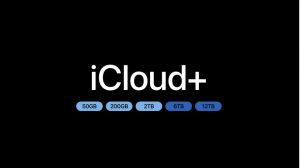The divide between green and blue bubbles in messaging might be narrowing soon, as reported by 9to5Mac. Apple has confirmed its intention to support the RCS (Rich Communication Services) messaging standard, a departure from its historical stance. This doesn’t imply that messages from Android devices will cease appearing green on Apple’s Messages app. However, texts from iPhones to non-iOS devices will now be compatible with the RCS protocol, eliminating the need for the aging SMS (and MMS) system. Apple stated, “We believe RCS Universal Profile will offer a better interoperability experience when compared to SMS or MMS.”
This support will complement iMessage, which remains Apple’s preferred and most secure messaging platform. Despite RCS enhancements, iMessage, with exclusive features like voice memo transcriptions and check-ins, may still overshadow default text messaging apps on Android. The announcement also suggests that there might be no alteration to the colors of conversation bubbles.
Previously, Google criticized Apple for not embracing RCS, asserting that the texting experience between iPhones and non-iPhones felt outdated. With Apple’s RCS support, messages between Android and iOS devices will be more secure than traditional SMS, and media can be shared at higher quality.
In response, Google expressed satisfaction with Apple’s RCS backing, emphasizing collaboration for a more equitable and secure messaging experience. A GSMA spokesperson highlighted that the RCS Universal Profile ensures an open, consistent, and global messaging service across networks and devices.
While the exact timeline for Apple’s RCS UP support is unclear, the statement indicates it will be implemented “later next year.” Coincidentally, this announcement aligns with the deadline for companies to file challenges at the European Union’s General Court. Apple is reportedly contesting the EU’s decision to include the entire App Store on a digital antitrust list under its Digital Markets Act.
Apple’s recent moves, including the USB-C ports in the iPhone 15 series and adherence to the Qi 2 wireless charging standard, suggest a willingness to collaborate with other devices. Whether driven by regulatory factors or other considerations, Apple seems to be gradually opening up parts of its closed ecosystem, potentially alleviating the need for everyone to “buy their mom an iPhone.”




